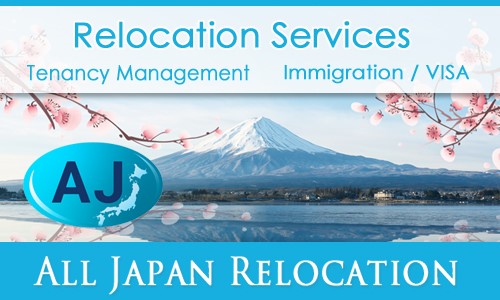Homeschooling in Japan: A Better Alternative?

This article is contributed by Aoba Global Campus.
Homeschooling throughout the world is on the rise and Japan is no exception. As a popular alternative to traditional schooling, homeschooling offers greater flexibility, personalised learning, and the opportunity for students to learn at their own pace. However, for families considering homeschooling, there is another option that can offer much of the same benefits while combining the positive aspects of a flexible home-based learning experience but with the structure and social interconnectivity of attending a traditional school - namely, online schooling.
Online Schooling as a Best of Both Worlds' Alternative to a Homeschool Education
While homeschooling and online schooling may seem similar at first glance, there are distinct advantages to choosing an online school education that overcomes some common issues that those considering homeschooling may encounter. It is important however, to distinguish between the two primary types of online schooling; online schools providing a synchronous learning experience following a standard weekly schedule with live-taught classes and other online students present; online schools offering an asynchronous learning experience, where lessons are not delivered live and students study completely independently - completing their classes whenever they choose to login. The focus in this article is on the former - online schools that provide a synchronous live-taught learning experience for students, combining the best aspects of homeschooling with the traditional schooling approach.
Read on to discover why synchronous online schooling could be the solution you're looking for.
Structured Curriculum and Expert Instruction
One of the challenges of homeschooling is the responsibility placed on parents to create and manage the curriculum, a task that can be overwhelming, especially for those without teaching experience. Online schooling, on the other hand, provides a structured curriculum that is created and updated by educational experts. This ensures that students are learning according to established academic standards, and parents don’t have to spend hours developing lesson plans or hunting down educational resources.
Moreover, reputable online schools employ certified teachers who provide expert instruction, so parents don’t have to juggle the role of teacher and parent. This can relieve a significant amount of pressure on families who want the best education for their children but don’t have the time or resources to homeschool effectively.
Access to Technology and Resources

Homeschooling can require a significant investment in educational tools, from textbooks to software programs, which can be both time-consuming and expensive. Online schools, however, provide access to state-of-the-art technology and resources, often at no additional cost. These might include interactive lessons, virtual labs, video tutorials, and other digital tools that enhance learning.
For example, some online schools offer specialised programs in science or the arts that are difficult for many homeschoolers to replicate. Furthermore, students have access to tech support if they run into problems, ensuring that the learning process continues smoothly.
Socialisation Opportunities
A common concern among parents considering homeschooling for their children is the potential lack of socialisation. While many homeschooling families often address this by pursuing extracurricular activities and participating in community events, online schooling often offers built-in opportunities for students to interact with their peers. These schools provide virtual classrooms, group discussions, and collaborative projects that allow students to develop social skills and make friends with others who are learning the same material.
In addition to the social interaction within the online school community, many online schools, such as Aoba Global Campus - the online extension of Aoba-Japan International School in Tokyo, provide extracurricular programs, opportunities to meet their online classmates in-person, and afterschool clubs that further enhance the student’s social experiences, providing a more rounded experience than some homeschooling setups can offer.
Flexibility with Accountability
Homeschooling is often valued for its flexibility, but it can sometimes lack accountability—especially if a parent is not experienced in teaching or managing their child’s education. Online schools provide the flexibility of homeschooling, with the added benefit of accountability and importantly, recognised accreditation that leads to standardised qualifications.
This structure ensures that students stay on track and don’t fall behind, while also allowing for flexibility in terms of where they learn from. It strikes a balance between independence and accountability, offering families the best of both worlds, as parents are not required to supervise their child throughout the school day.
Stronger Support Network for Parents
Parents who homeschool often find themselves isolated, with little to no support from outside the home and can be consumed by doubt about their skills or ability to teach effectively.
In contrast, online schools often have a robust support system in place for both students and parents. Teachers, counselors, and support staff are available to help with any issues that arise, whether academic, technical, or logistical, removing a lot of the stress and pressure that is typically experienced by parents of homeschooled students.
Students' Age Consideration
There is no doubt that the age of the student will be a key factor in considering whether homeschooling or online schooling is the right option for you. Younger students obviously need in-person adult supervision and support that is inherent to homeschooling. Students who are entering the last phase of their pre-university education, however, between the ages of 16-19, have reached a level of maturity where they can thrive in the online schooling approach. For Aoba Global Campus, students in grade 11 and 12 complete the IB Diploma Programme entirely online, from their home or wherever they have a stable internet connection, developing the time-management and self-discipline skills that will serve them long into their academic and professional careers.
On Second Thoughts
For parents considering homeschooling, online schooling offers a compelling alternative. It provides a structured, academically rigorous program without sacrificing flexibility, while also offering access to certified teachers, advanced technology, and socialisation opportunities. By choosing an online school, families can enjoy the benefits of a customized education without the heavy burden of planning and delivering lessons independently. If the student is at the pre-university phase of their education and you are looking for a way to blend the best of both worlds —homeschooling’s flexibility and traditional schooling’s resources—online schooling is an option well worth exploring.
To learn more about Aoba Global Campus and the Online IB Diploma Programme, visit their website at https://learn.aobajapan.jp/pathway/ib-dp.










